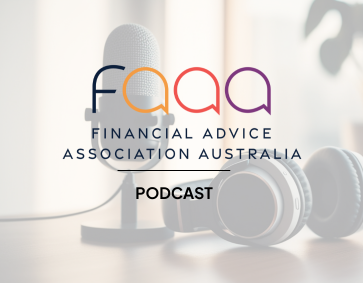The increasing level of market uncertainty has minimal impact on the healthcare sector, as these companies tend to perform better when global uncertainty indicators increase, according to Andrew Dale, partner, investments at ECP Asset Management.
“Demand for healthcare is not driven by macroeconomic events or trends but rather actual need. As such, the healthcare sector is largely immune to what is happening in the global macroeconomic landscape.
“Having said this, investors do need to take into consideration the changing funding environment, particularly in the US where a microscope is being applied to all healthcare spending. Probably the area that has been the most complex in this regard has been the hospital sector which has had to deal with all sorts of cost increases,” he says.
Looking more locally, Dale says the healthcare sector in Australia is diverse, and there is no one theme that is driving all stocks.
“In Australia, the aging population and the demand for healthcare services is increasing, and provided a company can manage its costs base and has minimal regulatory influencers, it will be well-positioned to grow earnings.
“With aging populations comes an increase in life-deteriorating diseases such as diabetes, sleep related illnesses, hearing related problems and just more generally overall health. These will help to drive growth of stocks like ResMed (ASX: RMD), Cochlear (ASX: COH), Fisher & Paykel (ASX: FPH) and CSL (ASX: CSL),” says Mr Dale.
ECP’s preference for the sector remains focused on speciality device and product companies.
“The growth rates of speciality device and products companies has been very consistent over the past 10 years (taking COVID into account) and we would expect growth rates to continue well into the next decade. These companies also have very strong market positions and are dominant in the space they operate in.
“For example ResMed has 80 to 90 per cent market share of sleep devices while Cochlear has around 60 to 70 per cent market share of cochlear implants. This sustainable competitive advantage puts these companies in a very good position, and they are very defensible in times of economic uncertainty.
“These device companies with high market shares are very different to some other healthcare related names where costs can be harder to manage in these sorts of inflationary times,” he says.
ResMed has consistently outperformed, which Mr Dale says is due to a number of reasons, including its focus on R&D and the creation of new products in the sleep space.
“ResMed has been a market leader for many years in the product that it makes. Aside from its R&D focus, it also benefited from Philips, the second largest competitor in this space, recalling two of its products. This led to ResMed growing its market share to around 80 to 90 per cent over a 12 months period, with its ability to affordability supply the market in a timely manner now the issue.
“The stock also suffered around 18 months ago from the hysteria generated by the increased usage of GLP1s. These drugs were set to revolutionise the obesity market and solve all sleeping related problems and obstructive sleep apnoea (OSA) problems. However, this was not the case and while GLP1s, when used correctly and consistently, have a very positive impact on weight loss, they take time to come into effect and are costly.
“Studies revealed that GLP1s can reduce the occurrence or severity of OSA, but combined therapy of GLP1s and CPAP usage was the best standard of care for OSA patients. This led to a large increase in demand and has really opened up the diagnosis funnel and will continue to drive good sales and earnings growth for the company over the next few years,” says Mr Dale.
Although some stocks have not performed to investor’s expectations, like CSL, Mr Dale says that the company’s fundamentals and strong R&D plans will support future growth.
“CSL had underperformed as investors had been disappointed with the pace of progress in its Behring business, and a narrative that has been distracted by its acquisition of Vifor and vaccine uncertainty in the US. There was also a global loss of appetite for healthcare companies post COVID in a "risk-on" world. But, as we’ve seen this year, things can change very quickly.
“We remain optimistic on CSL's long term future. Its margin recovery is underway, and the company has a number of product launches coming, including Hemgenix, a gene therapy for haemophilia, and Garadacimab, a treatment for hereditary angioedema, that should support growth.
“At 25 times FY25 earnings, for low double-digit earnings growth over the next 5 years and improving returns on capital due to lower capex, CSL is a defensive company that looks very attractive,” says Mr Dale.












